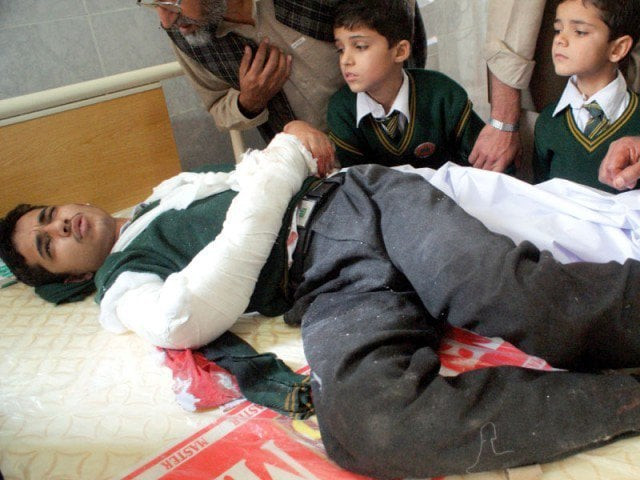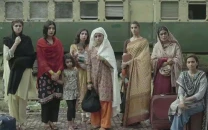APS massacre: Haunted by trauma, parents struggle to get over their loss
Two years on, the excruciating pain is as fresh as it was on December 16, 2014

PHOTO: REUTERS
Two years on, the excruciating pain is as fresh as it was on December 16, 2014. The gut-wrenching images of bloodied bodies of children continue to haunt the nation. And the grieving parents struggle to reconcile with their loss.
Our darkest hour
Today, as people hold candlelight vigils in memory of the APS victims, the bereaved parents cherish their children’s belongings at their homes. For them, these belongings have become memorabilia of the nightmare they are living. “Even the roads and streets are not big enough to accommodate so much grief,” says Baseer Khan who lives in the vicinity of APS.
When 13 bodies had been brought to the Lady Reading Hospital (LRH) along with a dozen injured on Dec 16, everyone feared a hostage-taking situation at the APS. They had little idea that it was a bloody rampage, a methodical massacre, and that most of the casualties had been shifted to the CMH for fear of another terrorist attack on the LRH.
The gruesome massacre had served as a binding force for Pakistanis in the fight against terrorism. The political and military leadership had given a clarion call against terrorists, launching a comprehensive national strategy to defeat the menace.
Peshawar school attack: When black display pictures say more than words
Though the attack’s mastermind and his facilitators have been eliminated, the grieving parents continue to call for a judicial inquiry to unmask those responsible for the deadly assault and high number of casualties.
Orengzeb Khan, a resident of Saddar area, had lost his son in the attack. He believes his son could have been saved as he had not received a fatal wound. “My son was not hit in his head or heart. He was hit in his hip by a bullet and died a painful and slow death due to excessive bleeding. I should have been allowed in to evacuate him out and save his life,” he recalls.
Khan has been wearing a pair of black shalwar qameez for the past two years and doesn’t change it. “I wear these clothes to mourn the death of my son. When they get dirty, I take them off, wash them and put them on again. I have not changed my routine for the past two years.”
Nation's young blessed with enormous potential, COAS says
He has decorated his house with the photos of his son who was a Grade X student.
Ghaysuddin Afridi lost his youngest son, Abdul Azam, in the APS attack. Initially, it was the mother of the 19-year-old who was in severe shock, but after a few months Afridi developed schizophrenia due to mental stress. “Now, he is bed-ridden and doesn’t remember anything,” says his second son while talking to The Express Tribune.
Similar is the condition of Farooq Afridi who had lost his son in the attack. “Sometimes he laughs, and then starts crying without any reason. He is suffering from mental disorder,” says Tahir Khan, whose son, Muhammad Shaheer, was also killed in the rampage.
Whoever comes to visit him is shown a picture of his son lying dead in a pile of bodies. “This is my child. I have seen this picture zillion of times and still check the album,” he says.
This condition, psychiatrist Dr Iftikhar says, is called ‘prolonged bereavement’. “In case of a natural death, the grieving period normally spans over three months, but it can prolong to six months. However, in case of an unnatural death, this period can extend up to two, three or even five years.”
“These people need individual counselling as well as a combined therapy courses in order to give some a direction to their grief, like involving them in welfare activities,” says Dr Iftikhar. “The victims of terrorism in K-P have all been going through the same trauma and there is a need to have counselling centres at the divisional level.”
Published in The Express Tribune, December 16th, 2016.













COMMENTS
Comments are moderated and generally will be posted if they are on-topic and not abusive.
For more information, please see our Comments FAQ